Stay in the know on all smart updates of your favorite topics.
Meet the Innovators – The Journey of Cotton

Meet the Innovators is back – your chance to meet the start-ups working at the cutting edge of sustainable fashion innovation! This time the spotlight will be on innovators that are shifting the needle towards more sustainable cotton – from production methodologies and techniques that have less impact on people and the planet, to ensuring this product can be traced from source to retail. Register your spot for this virtual event!
Meet the Innovators is back - your chance to meet the start-ups working at the cutting edge of sustainable fashion innovation! This time the spotlight will be on innovators that are shifting the needle towards more sustainable cotton - from production methodologies and techniques that have less impact on people and the planet, to ensuring this product can be traced from source to retail.
We're excited to have Franck Belochi, President at Calvin Klein Product for PVH Europe as a keynote speaker for this event! Franck leads the design, merchandising, development and production functions for CALVIN KLEIN apparel, footwear and accessories product for Europe, and for CALVIN KLEIN JEANS product for Europe and Asia-Pacific.
For the first time we will be running this event as a physical/virtual hybrid, with 30 spots at our museum in Amsterdam to see Franck in person, as well as the ability to join virtually from around the world. If you want to attend virtually please register via this page. If you want to attend in person at Rokin 102, Amsterdam please click here to sign up via the physical event registration page.
Agenda
18:30 - Intro from Fashion for Good
18:40 - Keynote from Franck Belochi, President at Calvin Klein Product
19:00 - Innovator pitches + panel discussion
19:20 - Q&A
19:30 - Close
Innovators Pitching
GALY engineers cotton in labs, rather than farming. They grow cotton through the multiplication of cells directly into the cotton fibre (removing steps of traditional cotton plantation). As a result they can grow cotton without the use of pesticides or fertilisers, using considerably less water. They are developing a faster, cleaner, less resource intensive cotton cultivation method, which can be more cost effective than traditional cotton in future.
hydroCotton grows cotton in a sustainable way in their research lab in South London. The technology that they have developed specifically for cotton agriculture enables them to reduce the volume of water and fertiliser used by up to 80%. Their farms are equipped with a network of smart sensors allowing tracking of farm data in real-time. They grow pesticide-free cotton, employing alternative pest control methods.
InfiniChains is a traceability & sustainability tech company with a focus on green supply chains. Their platform - CREDIBLE, stitches fragmented supply chain data to provide a comprehensive end-to-end traceability for the textile value chain. CREDIBLE complements existing supply chain systems by providing end to end traceability, certification & compliance management and intelligence engine around sustainability.
DROOGTE EN WATEROVERLAST VOORKOMEN DOE JE ZO

Hoe kan infiltrerende bestrating langdurig bijdragen aan een klimaatbestendige stad?
Mede door de droogte van de laatste jaren is infiltrerende bestrating weer een belangrijk aandachtspunt geworden bij gemeenten. Zulke bestrating laat namelijk niet alleen regenwater beter in de grond zakken, onder de weg kan het water ook worden vastgehouden voor drogere perioden. Dat kent wel een belangrijke uitdaging: onderhoud. “Beter onderhouden infiltrerende bestrating helpt klimaatdoelstellingen te behalen”, aldus Jeroen Kluck, lector Water in en om de stad aan de Hogeschool van Amsterdam (HvA).
INFILTRERENDE BESTRATING
Veel gemeenten willen met name weten hoe je voorkomt dat infiltrerende bestrating op termijn dichtslibt. De bestrating moet namelijk regelmatig vrijgemaakt worden van onkruid, afval en bladeren om goed haar werk te blijven doen. “Dat bewijzen de oude infiltrerende bestrating ook”, concludeert Ted Veldkamp, onderzoeker en projectleider van onderzoeksproject De infiltrerende stad. “Wat je vaak ziet: locaties met lage infiltratiecapaciteit (hoeveel millimeter water er per uur de grond ingaat) hebben veelal te maken met verkeerde keuzes in beheer en onderhoud. Dat liet voor ons het belang zien van een betere langetermijnstrategie.”
TESTEN VAN BEHEER EN ONDERHOUD
“Wij testen het verschil in effect van reguliere en grondige reiniging”, gaat Veldkamp verder. “Denk bij reguliere reiniging aan periodiek vegen en bij grondige reiniging aan regelmatig gebruik van een hogedrukspuit of ZOAB cleaner (wegdekreiniger). Uit onze analyses blijkt dat de laatste twee methodes voor meer dan tien keer zoveel infiltratiecapaciteit zorgen en een langdurige werking van het systeem opleveren.”
TOOL VOOR WAARDEBEPALING
De overstap van reguliere reiniging naar grondige reiniging met bijvoorbeeld een ZOAB cleaner, zorgt wel voor meer werk en kosten. Maar is dat ook zo op de lange termijn? Met behulp van een eigen ontworpen mkba-tool (maatschappelijk kosten baten analyse) vergelijkt het onderzoeksteam diverse scenario’s om tot de meest kosteneffectieve aanpak te komen. Door te variëren met specifieke kenmerken, zoals methode onderhoud, deel of gehele straat infiltreren, omgevingsfactoren, mogelijke schadekosten, biedt de tool nieuwe inzichten.
“Daaruit blijkt dat infiltrerende bestrating, mits grondig gereinigd, maar liefst 20-30 jaar mee kan”, concludeert Veldkamp. Dat trekt de kosten op de lange termijn recht vergeleken met traditionele bestrating. Dit komt door onder andere verminderde schadekosten, hergebruik van groen water en het wegvallen van rioolkosten. “En daarnaast van belangrijke waarde”, voegt Kluck toe, “het maakt steden klimaatbestendig!”
BUDGET VOOR ONDERHOUD EN SAMENWERKEN
Veldkamp: “Onze grootschalige testen en de adviesrapporten zijn een begin, maar uiteindelijk moet er langdurig worden getest om het verloop van effectiviteit van de infiltratie te meten. Er moet dus niet alleen budget vrijgemaakt worden voor ontwerp en aanleg, maar ook voor goed onderhoud. En alles wat daarbij komt kijken: personeel, wie is waar verantwoordelijk voor. Daarom doen we workshops en andere sessies met gemeenten, mkb’ers en wegbeheerders, om hen wegwijs te maken in toekomstige aanpak en investering. Wegbeheerders moeten bijvoorbeeld nieuwe richtlijnen krijgen voor hoe ze de infiltrerende bestrating het beste kunnen onderhouden. Dit alles kost tijd en energie, maar alleen dan kan infiltrerende bestrating goed werken.”
DE WEEK VAN DE INFILTRERENDE STAD BIJ HVA
Hoe gaan we droogte en wateroverlast tegen? Tijdens De week van De infiltrerende stad van 14 t/m 18 september kom je hier meer over te weten. Van interviews tot praktijkproeven, de hele week staat bij HvA in teken van infiltrerende bestrating om steden klimaatbestendig te maken.
https://www.hva.nl/urban-technology/gedeelde-content/nieuws/nieuws/2020/09/de-stad-als-spons.html
De infiltrerende stad - Webinar

Hoe gaan we in de stad om met wateroverlast door een sneller stijgende zeespiegel, nattere winters, heftigere buien en drogere zomers? Op 17 september presenteert het consortium van het project De Infiltrerende Stad haar onderzoeksresultaten over infiltrerende bestrating via een webinar. Nieuwsgierig naar twee jaar praktijkgericht onderzoek naar de effectiviteit, beheer en onderhoud én het op de markt brengen van infiltrerende verhardingen en onderliggende systemen? Meld je dan aan om deel te nemen aan het webinar.
TOEKOMST VAN INFILTRERENDE VERHARDINGEN
Tijdens het webinar presenteert Anne Leskens (Hogeschool Rotterdam) een overzicht van tot dusver beschikbare oplossingen voor aanleg en onderhoud van infiltrerende verhardingen. Ted Veldkamp (Hogeschool van Amsterdam) laat aan de hand van de resultaten van praktijktesten zien hoe doorlatende verhardingen functioneren in de praktijk. Floris Boogaard (Hanze Hogeschool) toont wat de bevindingen zijn van de proeven die zijn uitgevoerd aan de innovatieve oplossingen op de testlocatie Waterstraat in Delft.
Opgedane kennis en inzichten worden door Ted Veldkamp samengebracht in een passende marktstrategie. Dat maakt het mogelijk om nóg meer straten in Nederland te voorzien van deze innovatieve oplossingen, om op die manier lokale regenwaterinfiltratie te stimuleren.
HET WEBINAR
Het webinar start 17 september om 10.30 uur met een opening door Jeroen Kluck en een afsluiting om 12.30 uur door Rutger de Graaf.
SAMENWERKENDE PARTIJEN
De Infiltrerende Stad wordt in samenwerking met de volgende partijen uitgevoerd: Hogeschool van Amsterdam, Hogeschool Rotterdam, Hanzehogeschool Groningen, Aquaflow BV, Bufferblock BV, Building changes support, Drainvast, Germieco, Water Innovation Consulting (Hemels water), Markus BV, Ecologisch waterbeheer (Aqua Aurora), Van Gelder Aannemingsbedrijf, Gemeente Bergen, Gemeente Groningen, Gemeente Rotterdam en het Hoogheemraadschap van Delfland.
Het onderzoek is mede mogelijk gemaakt door SIA Raak-mkb financiering.
Je koffiedrab duurzaam laten ophalen, circulair verwerkt!
Ben of ken jij eigenaren van horecazaken en bedrijven waar wij kunnen helpen bij het gescheiden inzamelen van koffiedrab? Wij zijn op zoek en horen het graag in de comments.
Door met Seenons je afval - nee reststromen - gescheiden op te laten halen wordt het duurzaam opgehaald en circulair verwerkt. En kunnen hier weer mooie producten van worden gemaakt die anders zouden zijn verbrand.
Het inzamelen gebeurt uiteraard op de meest duurzame manier, want in samenwerking kunnen wij de koffiedrab in geheel Amsterdam ophalen met de elektrische wagens van onze partners GroenCollect BV en Pantar.
Van deze koffiedrab kunnen we heel veel mooie circulaire producten maken zoals bijvoorbeeld de zeep van Kusala Gifts of de personal care producten van Unwaste.
Samen maken we de cirkel rond!
Kijk voor meer informatie:
https://seenons.com/koffie/
BACK TO THE FUTURES – GLOBAL GOALS JAM ONLINE SYMPOSIUM
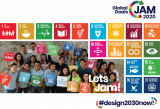
This year marks the 5th edition of the Global Goals Jam. During these past five years, our community has grown substantially. We have had jammers participating in over 85 cities all over the world – that calls for a celebration. Therefore, we would like to invite you to join Back to the Futures, our very first online symposium!
With Back to the Futures, we officially kick off the Global Goals Jam 2020.
What? An online symposium in which we have invited long-term Global Goals Jam organizers and a facilitator to take the (virtual) stage. In a total of three rounds, these speakers will explore three topics that are key in designing for and with the Sustainable Development Goals:
1. Social and cultural bias in creative practices for sustainable development.
2. The shift in perspectives from human-centered design to design for life/design for the Sustainable Development Goals
3. Distance and desirability: health and well being in the communities of the digital age.
During each round, two to three speakers will share and discuss local perspectives from all over the globe on one of these topics between themselves – and together with you!
How? Simply post your questions in the chat next to the virtual stage – at the end of each round, we will do a Q&A. We encourage you to think along critically and share with us questions from your communities locally in order to foster inclusivity and diversity.
Why? With five years in the making, we wanted to give you the opportunity to connect more with our growing global community and think along with us about future Global Goals Jams. In these times of unprecedented uncertainty and with many being home-bound, it is – more than ever – important to embrace cross-cultural collaboration and design. By looking back on the experiences and insights from five years of Global Goals Jam, we can build sustainable futures together.
Where? The online platform Hopin. Get your free ticket here!
When? Wednesday, the 16th of September 2020, 12:00 until 14:00 CEST (local Amsterdam time).
After the symposium ends, you are more than welcome to stick around on the platform Hopin – it has some great networking options – so you can meet organizers and participants around the world. At 14:30 there will also be the option to dive in deeper into the projects we will work on in Amsterdam, by testing some freshly designed prototypes of our trainees. So stick around.
Speakers will be announced on our website shortly.
See you there!
Circular Economy Lab: Circulair inkopen van ICT

In samenwerking met het Utrecht Sustainability Institute organiseert de Amsterdam Economic Board het 22ste Circular Economy Lab. Dit keer staan circulaire mogelijkheden voor ICT-apparatuur op de werkplek centraal.
Computers, servers en beeldschermen hebben een enorme impact op het milieu. Productie en gebruik kosten veel energie en de producten bevatten kritieke metalen. De korte afschrijvingsperiode zorgt jaarlijks voor de afdanking van miljoenen tonnen elektronische apparatuur, waardoor kritieke metalen snel op raken. Er is veel potentie voor slimmere en circulaire oplossingen, zoals levensduurverlenging. Maar in de praktijk wordt hiervan nog weinig gebruik gemaakt op de werkplek.
Tijdens het Circular Economy Lab: Circulair inkopen van ICT identificeren we samen met experts en koplopers de knelpunten en bepalen we hoe we circulaire oplossingen bereikbaar maken en opschalen. We richten ons daarbij op inkopende organisaties (inkopers, categorie- en contractmanagers, onderhoud en service rondom ICT) en op vendoren/leveranciers van ICT-apparatuur. Aan het einde van 2020 organiseren we een Circular Economy Lab over dataservers.
Het 22ste Circular Economy Lab gaat online om iedereen de kans te bieden erbij te zijn. Doe mee met de open paneldiscussies met experts. Deel eigen ervaringen, leer van elkaar en stel de vragen die jou verder helpen. Meld je nu aan.
Programma
- Welkom | door Jacqueline Cramer, Utrecht Sustainability Institute, moderator van het Lab en Boardlid
- Introductie Circulariteit en ICT: urgentie en cijfers | door Joppe van Driel, Utrecht Sustainability Institute
Sessie I Circulariteit en ICT: huidige stand van zaken
- Pitch Best practice: Displays as a service | door Lowi Vervoorn, Schiphol
- Paneldiscussie met: Christina Geierlehner (HP Inc.), Michel Strijker (Gemeente Almere), Lowi Vervoorn (Schiphol)
- Onderwerpen:
- Welke circulaire oplossingen voor werkplekapparatuur worden nu al toegepast?
- Welke drempels ervaren inkopende organisaties?
- Welke drempels ervaren vendoren/leveranciers?
- Hoe kunnen we het inkoopproces verbeteren zodat (rendabele) circulaire oplossingen binnen bereik komen?
Sessie II Naar een bredere toepassing van circulaire werkplekapparatuur
- Pitch Nieuwe MVI-criteria voor ICT hardware | door Klaas van de Sterren, Rijkswaterstaat
- Paneldiscussie met: Sybren Bosch (Copper8), Robbert Hoefnagel (Green IT), Klaas van de Sterren (Rijkswaterstaat), Rudie de Vries (Gemeente Haarlem)
- Onderwerpen:
- Hoe ver kunnen we komen in circulaire oplossingen voor werkplekapparatuur?
- Wat is hiervoor nodig? En waarom is dit belangrijk?
- Wat kunnen we nu al veranderen?
- Conclusies & vervolgacties
door Jacqueline Cramer
Inkopen met impact
Inkopen met impact is een overkoepelend thema waaronder diverse initiatieven van de Board samenkomen. Met elke euro die je als organisatie uitgeeft aan producten en diensten, heb je de keuze voor het duurzamer, eerlijker of innovatiever alternatief. Daarmee is inkopen een belangrijke driver voor een slimme, groene en gezonde toekomst van de Metropool Amsterdam.
Solar Decathlon Europe
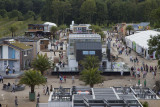
The Call for Cities for the Solar Decathlon Europe 2023 has been published. This would be a huge opportunity for Amsterdam to host this event to raise energy literacy.
#NordicTalks Sustainable Fashion Days 2020 3rd Webinar Free event

3rd WEBINAR 30 September 2020 | 15:00 – 16:30
WE KNOW NOW.| Awareness raising
We don’t know what we don’t know. Is this however something we can still claim about the secrets of fashion business? We should wear our values – clothes that are sustainably and ethically made, providing also those who make them a decent living.
Quality over quantity. Fashion can be used as a voice of CHANGE. What do you stand for?
Raising transparency, campaigning, social justice, spotlighting solutions and
bright ideas
The environmental impact of fashion
Social impact of fashion – Sweatshops #whomademyclothes #payup
Company values and importance of purpose
Role of campaigns and advertising – using fashion as a force for good
#NordicTalks Sustainable Fashion Days 2020 2nd Webinar Free event

2nd WEBINAR 23 September 2020 | 15:00 – 16:30
CONSUMERS TURNING GREEN. | Demand driven fashion change
Are consumers the drivers of the change in fashion? What fashion do they want? Are they willing to change the way they shop and what they buy? Are the new fashion influencers changing the narrative and mindset of masses? When and where is the tipping point and what does it mean?
What is sustainable fashion? Why we need it? Do consumers really want a sustainable fashion?
Community building and the “new cool”. Research, Influencers and front runners. Raise of secondhand/VINTAGE, leasing instead of buying
Building a clear case that sustainability, social impact and profit can go hand in hand
What to do with Influencers promoting fast fashion of Fashion Nova or About You? How to amplify voices of Sustainable fashion Influencers?
Seenons
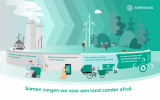
Samen maken wij 100.000 bedrijven restafval-vrij in 2025!
Seenons maakt het omschakelen naar een duurzame bedrijfsvoering gemakkelijk.
Seenons bundelt de krachten van traditionele afvaldienstverleners en duurzame logistieke partijen in een intelligent platform. Jij geeft aan welke specifieke afvalstromen er vrij komen bij jou in het bedrijf. Wij kijken welke partij bij jou in de buurt is en halen het afval op de meest duurzame manier op. Dit gebeurt allemaal contract vrij en is optimaal flexibel opgesteld. Geen vaste dagen met betrekking tot het ophalen. Simpelweg: bak vol? Geef het door, wij regelen de rest!
Op de hoogte blijven van ontwikkelingen of meer informatie?
Stuur een mailtje naar <hallo@seenons.com>
EC-Link Platform

You would like to connect with Urban Environmental Sustainability practitioners and researchers in China and exchange your approaches to green transport, clean energy, compact urban development, water and solid waste management, green buildings and municipal finance? Then sign up to the EC-Link platform! The platform links Eco Cities across Europe and China, offering inspiring examples from both sides of Eurasia and enabling direct contacts to the innovators. With the help of an integrated translation tool, posts can be translated into Chinese and English with just one click. Use of the platform is free of charge: http://eclink.org/bbs/#/?lang=en
A description of how the platform works can be downloaded here: http://eclink.org/ec_platform/upload/document/EC-Link_Users'%20Guide-EN.pdf
#NordicTalks Sustainable Fashion Days 2020 1st Webinar Free event

Welcome to #NordicTalksSFD2020 where several leading Nordic and Dutch fashion profiles will talk about sustainable fashion. Production, retail, consumer perspective as well as social and environmental aspects will be touched upon to get an overall understanding on the complexity and how we as individuals can make change happen.
1st WEBINAR 16th September 2020 | 15:00 – 16:30
GREEN FASHION. GREEN FUTURE | Is the Future of fashion Green?
With a call for sustainable fashion that is more conscious (buying less, using better materials), fair (social justice in the supply chain, livable pay) and circular (sharing/renting business models, longevity, repairing and clothes with stories), how does a sustainable fashion company look like? What do they produce, where, in what way and in what quantities? Who are their customers? Who are the producers? What materials do they use, how do they sell clothes and for how much?
Insights into the big systemic changes transforming the industry and recreating the trends. Is sustainable collection the answer? Or do we need a strategic change and new business model? How to achieve this?
Big brands, new brands. Collaboration with innovative start-ups and scaling of ideas
2nd Webinar, 23rd September 2020 | 15:00 – 16:30. – CONSUMERS TURNING GREEN.
3rd Webinar, 30th September 2020 | 15:00 – 16:30. – WE KNOW NOW.
FREE OF CHARGE
#Nordictalks Sustainable Fashion Days 2020 is organized in collaboration with the Swedish Chamber of Commerce for the Netherlands, Finnish Dutch Chamber of Commerce, Danish Dutch Chamber of Commerce, Norwegian Dutch Chamber of Commerce, Embassy of Sweden in The Hague, Embassy of Denmark in the Netherlands, Royal Norwegian Embassy in The Hague, Embassy of Finland in The Netherlands
Welcome to join!
For more information: https://bit.ly/2Qa4pRw
From now on....according to Eva Gladek

The world is turned upside down since the corona crisis. This gives us the space to think about a complete ‘reset’. How can we restructure existing dysfunctional systems? In this RESET series, Pakhuis de Zwijger will showcase the perspectives of a variety of thought leaders who will reflect on this present-day situation.
In this RESET edition, moderator Jurgen is interviewing Eva Gladek, founder and CEO of Metabolic. We return to a new normal now. Is it possible to create a new normal, a complete reset? To create a new future? Eva replies how she ran back home to Amsterdam from New York, the day the lockdown restrictions were put in place: “I think the shutdown of normal activities has created space to reflect. It was a good time to re-examine the greater state of the world. How are we going to handle this as we move forward?”
Eva continuous: “Questions arise, is this world ever going to be the same? How will it effect our work? Metabolic did well during the lockdown, we saw the interest in sustainability increasing. Organisations are opening up to new ways to cope and work on a sustainable future. Metabolic is an ecosystem of organisations, to help organisations to be part of the transition to create a fundamentally sustainable world. We’re looking at the root causes that need to be solved and how to correct those and move society in the right direction. We’re addressing them like ninjas: apply pressure on the right pressure points that are at the root of these causes.”
Circular economy
An important concept for this is the circular economy, where processes are actually designed to work in a waste free, regenerative way right from the start. Eva: “It’s like a natural eco-system, where everything is re-absorbed or re-purposed. We have to mimic natural systems and their intelligence. So we adapted the definition of a circular economy to include seven main pillars of performance, including social aspects.”
Eva: “From now on we will re-imagine the economy and escape the 9 to 5 grind’ is mentioned. We have been thinking about green recovery plans the wrong way. There is actually a positive future if we take the opportunities that this crisis has created to move into a new, more sustainable circular economy. We have to use this opportunity to talk about deep economic reform, to create a better economy. Building Back Better is a way to move forward from COVID-19. But we should go much further then the current greenwash that takes place.”
Automation
Eva: “Automation is not just about jobs. Historically the invention of machines and fossil fuels increased efficiency and caused an amazing transition. Keynes predicted that in a 100 years we would only have to work 15 hours a week, driven by increases in prosperity. By now, we know that this prediction was wrong. While the world’s GDP has gone up 35 times and the population increased just 4 times in size in the past 100 years, there should be a huge increase in overall prosperity. But again, this is not the case. The rise in automation has created a dramatic inequality. Our economic system is designed to create this inequality.
Continuous growth of our economy results in a similar, exponential growth of ecological destruction. We’re crossing the planetary boundaries of what constitutes a sustainable planet.”
Reform the system
Eva: “This current system needs to be reformed: Building back to create a genuinely better, circular world. There is a lot we can do. What we need to do is work together to bring genuine change. We shouldn’t focus on growth as such, but on the wellbeing of populations. We have to create an economy that allows people to participate themselves, instead of being forced to work in mindless jobs.”
Matthew Moroney
Matthew is co-founder of Raise Green, an investor marketplace for local impact investing in clean energy and climate solution projects. Matt: “How can the system be changed to make it more inclusive and how can it contribute to local communities? How can we connect capital to all these new projects that are starting up worldwide to move us in the right direction? We notice that the interest in sustainable investing is growing rapidly, funds are created, but the actual investment in viable projects lags behind. Verifiability of sustainable projects is an important requirement for these funds to start flowing.”. Raise Green screens all projects before they go open for investment on 5 pillars: revenue, ambition, impact, social and environmental.
Time for Action
Matt and Eva agree that the time for action is now! No more waiting for endless reports, what they think is needed is getting all these new projects up and running and start learning by doing, every step on the way.
Do you want to watch the full livestream? Visit the website of Pakhuis de Zwijger: <https://dezwijger.nl/programma/from-now-on-according-to-eva-gladek>
The discussion of this evening is exactly the discussion that needs to take place. The time for action is now! The transition from a linear to a circular economy asks for collaboration between the public and private sector, something we work on every day, together with partners like Metabolic. Learning by doing, every time.
Province of Noord-Holland subsidises circular economy knowledge exchange (in Dutch)
De provincie Noord-Holland wil de aandacht voor de noodzaak en kansen van een circulaire economie bij de inwoners van Noord-Holland stimuleren. Daarvoor stelt zij in 2020 €25.000,- beschikbaar (max. €5.000,- per project) voor stichtingen en verenigingen die via kleinschalige activiteiten dit onderwerp bij bewoners voor het voetlicht brengen.
Voor meer informatie over deze (en andere) subsidieregeling(en) kan je terecht bij het subsidieloket van de provincie Noord-Holland. Deze is te vinden in de bijgevoegde link. Subsidieaanvragen kunnen tot en met 30 oktober 2020 worden ingediend.
Parksharing: for local collaboration and sharing between businesses

The importance of working together locally, sharing together, and matching supply and demand between companies is increasing. More than ever, we see local entrepreneurs helping each other and purchasing products or services from one another. Working together from the catering industry to healthcare pays off. Parksharing enables entrepreneurs, businesses and organizations to take concrete steps towards local cooperation and sustainable entrepreneurship.
Connecting, collaborating and sustainability
We connect companies and organizations at local level through Parksharing. The platform shows which companies and organizations are in the municipality and what they can do for each other. Companies can then offer and purchase their products and services among themselves. After all, why find a distant friend when you have a good neighbor?
In addition, companies can match and share the supply and demand of company resources, materials, residual flows, services, personnel and facilities. For some companies, there is a great demand for materials, resources or extra manpower, while for other organizations equipment is idle or staff are temporarily available.
Think very concretely about: forklift trucks, storage space, parking spaces, partial mobility, residual flows and materials, transport capacity, meeting rooms, surplus stock, knowledge, sustainable projects or business cases, workplaces, technical staff and warehouse employees, for example.
PARKSHARING FOR LOCAL COLLABORATION AND SHARING
The importance of working together locally, sharing together, and matching supply and demand between companies is increasing. More than ever, we see local entrepreneurs helping each other and purchasing products or services from one another. Working together from the catering industry to healthcare pays off. Park sharing enables entrepreneurs, companies and organizations to take concrete steps towards local cooperation and sustainable entrepreneurship.
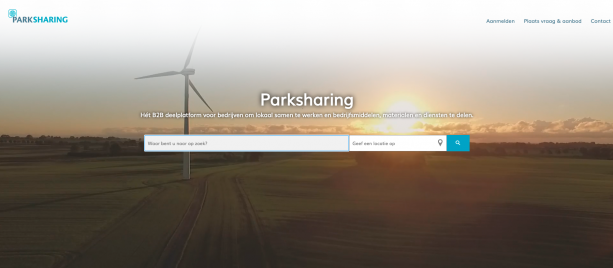
CONNECT, COLLABORATE, SHARE AND BECOME SUSTAINABLE
We connect companies and organizations at local level through Parksharing. The platform shows which companies and organizations are in the municipality and what they can do for each other. Companies can then offer and purchase their products and services among themselves. After all, why find a distant friend when you have a good neighbor?
In addition, companies can match and share the supply and demand of company resources, materials, residual flows, services, personnel and facilities. For some companies, there is a great demand for materials, resources or extra manpower, while for other organizations equipment is idle or staff are temporarily available.
Think very concretely about: forklift trucks, storage space, parking spaces, partial mobility, residual flows and materials, transport capacity, meeting rooms, surplus stock, knowledge, sustainable projects or business cases, workplaces, technical staff and warehouse employees, for example.
PARKSHARING SCAN
To accelerate this new and circular development from ownership to use, we have developed a ParkSharingScan. This allows companies to calculate in advance what they can potentially earn and save by sharing assets, materials, services and facilities, both in euros and in energy and CO2.
The first results of the SharingScan are already promising: 10.3 million euros potential savings in costs, 7.5 million CO2 savings and more than 11.5 million KwH in energy savings.
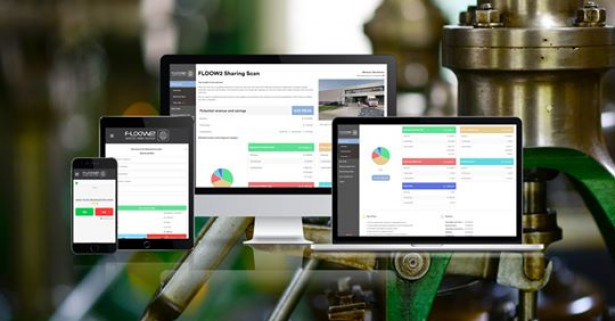
Impact Hub Amsterdam Report: COVID-19 as a Tipping Point
How the crisis connects – and how it may accelerate the transition to a sustainable food system.
Climate change. Loss of biodiversity. Famine and obesity. A national nitrogen crisis. Our current ways of food production and consumption are not sustainable. The call for change grows louder – and is now accelerated by COVID-19. Does COVID-19 provide the much-needed tipping point for change?
This report investigates two timely questions: how has COVID-19 impacted sustainable food entrepreneurs? And how can we use these insights to accelerate the transition to a sustainable food system?
One of the key findings: COVID-19 stressed the importance of resilience. It cleared schedules to focus on new, long-term strategies, and gave rise to an important means to resilient and innovative entrepreneurship: collaboration. Interested to learn more? Read the report here: https://bit.ly/COVIDFoodReport (in Dutch, with an English summary).
Covid-19 as a Tipping Point was created with the support of the Ministry of Agriculture, Nature and Food Quality, Stichting DOEN, and Amsterdam Impact.
Food Ecosystem
This report is part of Impact Hub Amsterdam's Food Ecosystem. The Netherlands is the second largest exporter of agro-food products worldwide. What if we used this position to make a real impact across the food chain and accelerate the transition to a more sustainable food system? Read more about our Food Ecosystem at http://bit.ly/IHAFoodEcosystem.
Biologische Stadsboeren Coöperatie in de stad Arnhem
In de Corona tijd is de belangstelling toegenomen voor lokaal voedsel produceren, lokaal voedsel verwerken en lokaal voedsel consumeren. Naar het voorbeeld in Amsterdam ( stadsboeren.org ) is nu de tijd rijp voor een Biologische Stadsboeren Coöperatie Arnhem Groen in de stad Arnhem.
Schijnerg Group

Creating the next-generation renewable energy digital platform, focusing on machine learning-based consulting and sustainable community. Additionally, it provides engineering consultancy which is 100% digital through machine learning optimization. Furthermore, it also transforms the data to solve unique to our client need and it embarks a lifelong companion for clients to grow from installation to decommissioning.
Bees Digital Farm

Ever since the 20th century most of the countries across the globe are still using the traditional way of farming and it’s still going on for the demand and supply of people. As we all know that by the year 2050, the 80 % estimation of the world population will have been living in urban areas which can lead the total population of the world to increase by 3 billion people. With this large amount of increase in population, scientists and researchers are quite worried about the farmland which will be required to generate such a huge demand for food supply to fulfill the necessity to survive. Noticing this fact in mind as what would be the future source of alternative solutions to solve such a type of problem a concept was proposed named “In-House Farming”.
Meet the Innovators South Asia

In our next Meet the Innovators series, you’ll be hearing from a few innovators in the first batch of our South Asia Innovation Programme which kicked off at the beginning of the year.
We’ll be joined by two innovators, who will share the disruptive solutions they are working on and you the audience will once again have an opportunity to ask plenty of questions. Fashion for Good's International Expansion Manager Priyanka Khanna will host this session, giving a brief intro on how we work alongside these innovators through our Innovation Platform.
Innovators Pitching:
Parth Patil - CEO of Infinichains
InfiniChains is a leading end-to-end track and trace solution using blockchain, AI and Cloud Computing to help brands and manufacturers to digitise sustainability practices. Through real-time data, efficiency and storytelling, they bridge the fragmented gaps between the different sustainability systems of farmers, manufacturers and brands.
Adrian Jones and Graham Ross - Founders of Blocktexx
BlockTexx turns textile waste into a resource, stimulates the production of new products and meets consumers demands to reduce the environmental impact of our everyday clothing.
Stay up to date
Get notified about new updates, opportunities or events that match your interests.

